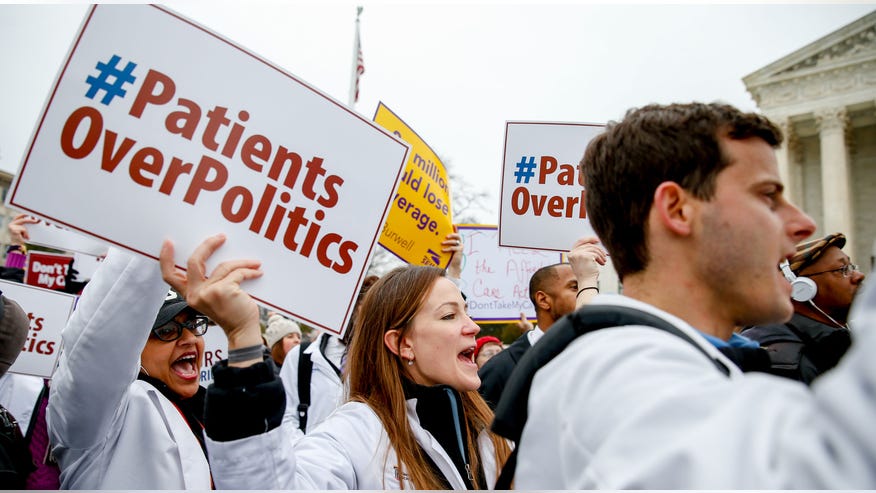The upcoming King v. Burwell ruling, with its ramifications for the Affordable Care Act, has health-insurance costs back in the spotlight. Health-care mandates in particular have been an ongoing source of controversy. But states have been quietly passing their own health-insurance benefit mandates —requirements that insurers cover specific treatments and conditions — for decades, and there's much we can learn from them.
The number of state-level health-insurance mandates has steadily grown since the 1960s, with the average state imposing nearly 40. This growth surged recently due to the ACA's "Essential Health Benefits." The scope of the services targeted by these mandates varies widely, from cancer screening and prenatal care to acupuncture and chiropractic services.
Some mandated services seem essential to an adequate health-insurance plan, while others are of questionable benefit. What they all have in common is that they increase the cost of insurance by raising premiums for the people and employers who buy it. And higher premiums lead to other hidden costs as well.
In new research for the Mercatus Center at George Mason University, we find evidence that new state health-insurance mandates distort state economies by leading to the existence of more large firms and fewer small firms.
The key to understanding how state mandates affect firm size lies in the Employee Retirement Income Security Act (ERISA) of 1974. Under ERISA, employers who self-insure (that is, directly bear the cost of paying their employees'benefit claims instead of buying coverage from an insurance company) are exempt from state health-insurance mandates. While technically a firm of any size is able to self-insure its health plan, in practice it is only the largest employers who opt for this form of coverage. This is because any form of insurance is more cost-effective when risk is pooled over a larger population.
A large employer can easily absorb the cost of one employee's expensive cancer treatment, because the costs are relatively insignificant when spread out among its many more fortunate workers. However, if a small business had to pay the entire cost of the same cancer treatment, it could go bankrupt.
These incentives are clearly illustrated by breaking down the self-insurance rate by firm size. Approximately 84 percent of employees at large firms (employers with at least 1,000 workers) are covered via self-insurance plans, compared with only 13 percent of employees at small firms (fewer than 50 employees).
Because it is easier and cheaper for large firms to self-insure, and thus escape state health-benefit mandates, they face less of a burden than small firms. This grants them a competitive advantage in the form of lower labor costs. The result is surprising: We find that each state health-benefit mandate leads to about 3,000 fewer small firms (with, for instance, 15 workers each), but about 20 more large firms with 1,000 or more workers. The overall level of employment is essentially unchanged.
If there is no change in overall employment, just a shift in the size of the firm employing the average worker, why should we care? While it may seem harmless, the shift could actually have serious implications for the overall productivity of our economy. Take job growth, for example. A recent study found that new, small firms (as opposed to larger, more established firms) were the primary creators of new jobs. Given these results, we should be wary of any policy which places heavy burdens on small employers.
















